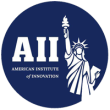Tbilisi State Medical University is the main center of higher medical education in Georgia, which has a centuries-old history of development. Higher medical education in Georgia is similarly older. It is proud that thousands of graduates of Tbilisi State Medical University are currently decorating many leading clinics and institutions in Georgia, Europe and around the world.
The role and responsibility of Tbilisi State Medical University in ensuring the health of the population is great and honorable. In carrying out this important mission, Tbilisi State Medical University is guided by the basic principles that define its activities, which are:
- Academic degree of knowledge and research
- Democracy
- Selectivity and transparency of governing bodies
- Academic freedom of academic staff and students
Undergraduate, postgraduate and continuous professional education, master’s and doctoral programmes, higher professional education programmes delivered at Tbilisi are attracted by young people in Georgia and young medical enthusiasts around the world.
Tbilisi State Medical University is a full member of the European Educational Space, which means its active role in the functioning of this educational system, defining development directions and their realization, establishing free and close scientific and educational contacts with foreign educational, scientific and clinical centers.
On May 23, 2019, a representative office of the European Association for Medical Education – AMEE was established at Tbilisi State Medical University (currently the association has expanded to include 110 countries and received the status of an international association) in Georgia.
Georgia has become an international center of medical education, which is an important step towards integration into the European educational space. The main goal of the AMEE International Cooperation Center in Georgia will be to share modern methodologies of medical education, to conduct thematic trainings for the academic and administrative staff of the region’s higher medical schools.
Confirmation of the international recognition of Tbilisi State Medical University is that Tbilisi State Medical University is attractive today for more than 2700 young people from 72 countries, which means that every third student at our university is an international student.
Accomplishing high standards of medical education ensures the successful development of traditional educational programmes at the Medical University. Tbilisi State Medical University has been operating joint educational programmes for many years as below:
- American Graduate Physician programme in partnership with Emory University (Atlanta, USA).
- Undergraduate program in Public Health and Management, where the University partner is the Grenoble Academy of Management and Enforcement UniMan (France). Upon completion of the programme, two diplomas – Georgian and French – will be issued; Also, in cooperation with UniMan (France), a master’s program in public health management and health policy has been created.
- A joint training programme for nurses from the Western Educational Center of the Tyrolean Clinics Association – AZW (Austria) and Tbilisi State Medical University, which allows Georgian nurses to master the profession in accordance with European standards, undergo internships and gain international experience in Austrian clinics.
TSMU currently partners with more than 120 universities and university clinics from more than 30 countries; Cooperation with them is regulated by bilateral agreements and / or joint international projects (ERASMUS, HORIZON, MEVLANA, etc.). Every year, more than 600 students, residents, academic and administrative staff, scientists, doctors and nurses of our University participate in short and long-term international mobility programmes. Visits of professors and students of partner universities are frequent at Tbilisi State Medical University to do internships and share our achievements.
Tbilisi State Medical University attaches great importance to the development of a student-centered education system as opposed to a teacher-centered system (which is not time-dependent and a priori assumes that the professor knows what to teach the student). The student-centered approach places much more emphasis on curriculum planning, it focuses on the relevance of the curriculum to the student, given his or her future social and professional role in society.





